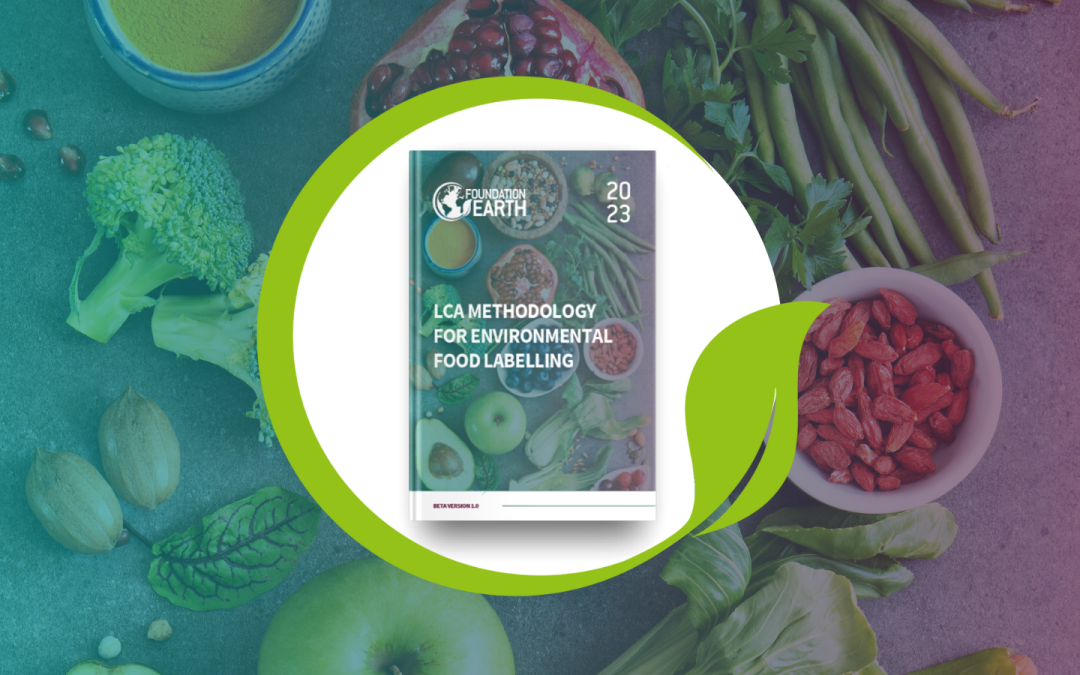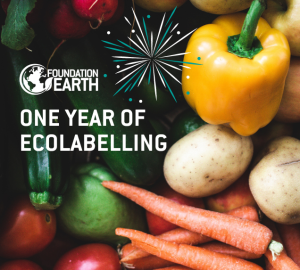After over a year of intensive research, development and testing with partners and stakeholders, Foundation Earth is excited to publish its new method to assess the environmental impact of food and drink products.
The methodology, which proposes an improved version of the European Commission’s Product Environmental Footprint (PEF) – the closest yet to an agreed standard – marks a huge milestone in the world of ecolabelling, bringing us one step closer to harmonised system that can be used across Europe and beyond.
The new Life Cycle Assessment method, developed in collaboration with Blonk Consultants, DIL German Institute of Food Technologies (Deutsches Institut für Lebensmitteltechnik e.V.) and supported by EIT Food, is going open source to increase transparency and allow for large uptake globally.
The method proposes a robust and data-driven environmental scoring system which allows for the comparison between different food chains producing the same type of food, enabling businesses to transform their food systems to reach sustainability targets, whilst providing consumers with the clear and credible information needed to make more sustainable buying choices through ecolabels.
“As the Chair of the independent Scientific Committee of Foundation Earth I am delighted that a crucial stage in the development of a harmonised approach to the ecolabelling for the food we consume has been reached. Foundation Earth has provided the inspiration, innovation and leadership to reach this juncture,” said Professor Chris Elliott OBE, chairman of the Foundation Earth scientific committee and one of the UK’s leading food scientists.
This work is the continuation of Foundation Earth’s mission to build more sustainable food systems by gathering critical mass and support under a single ecolabelling scheme from experts, scientists, major industry players, tech giants and consumer research organisations. Over 20 brands have already scored 350+ products with Foundation Earth, demonstrating commitment from the sector to join the environmental movement under this initiative.
“We want to support consumers in making informed, sustainable choices. For Nestlé, having an EU-wide harmonised system to measure the environmental footprint of our products is crucial. Policymakers across Europe should swiftly agree on such an approach to avoid further confusion. Foundation Earth is leading very robust scientific groundwork which needs to inform the technical and political discussions in Europe. Nestlé actively supports these open and collaborative efforts,” said Johannes Weber, European Affairs Manager at Nestlé.
In line with our commitment to continued innovation, further improvements will be made to the method in the months ahead. The method has been welcomed by two of Europe’s leading food scientists and some of the globe’s largest and most recognisable food brands, some of which have been involved in testing and piloting the method over recent months.
This is a particular breakthrough when it comes to ensuring that green claims can be substantiated against the European Green Deal and Circular Economy Action Plan of 2020, enabling businesses to prepare for EU and UK policy aiming to increase environmental transparency.
Improving the current European Product Environmental Footprint method (PEF)
Although widely accepted, the existing PEF system has been associated with some challenges, the two main barriers being:
- Its inability to accept primary data from specific supply chains – meaning that different food chains producing the same food cannot be compared.
- Much of the PEF process has not been specifically defined. This means that two PEF analyses from different companies could end up with varying results due to different interpretations of the rules.
The Foundation Earth method addresses these weaknesses and offers substantially improved levels of information over the previous PEF system, providing clear guidance for the delivery of standardised PEF assessments and, through the inclusion of primary data, enabling the comparison of different supply chains producing the same product.
“The European Commission made an important contribution with the development of the Product Environmental Footprint (PEF), but it was not yet ready to enable comparisons between all food categories. The launch of Foundation Earth’s harmonised method is of great importance to take the next steps forward,” said Koen Boone, Director Europe of the Sustainability Consortium at Wageningen University.
The updated method allows for the assessment of the 16 environmental impact indicators under PEF including: Climate change, Ozone depletion, Human toxicity (cancer), Human toxicity (non-cancer), Particulate matter, Ionising radiation, Photochemical ozone formation, Acidification, Eutrophication (terrestrial), Eutrophication (freshwater), Ecotoxicity (freshwater), Eutrophication (marine), Land use, Water use, Resource use (minerals, metals), Resource use (fossils).
The methodology:
- Proposes a harmonised PEF-friendly LCA methodology to calculate the environmental footprint of food products.
- Builds on existing developments, PEFCRs, PEF Guidance, Food Drink Europe guidance.
- Designed to allow for the comparison of grades between different food categories and within the same category.
- Provides guidance on primary data sources required to run the LCA based on the type of food producer.
- Provides guidance on preferred secondary data sources.
- Proposes a simplified approach to the PEF data quality assessment to allow for widespread use.
Download the full press release here.








